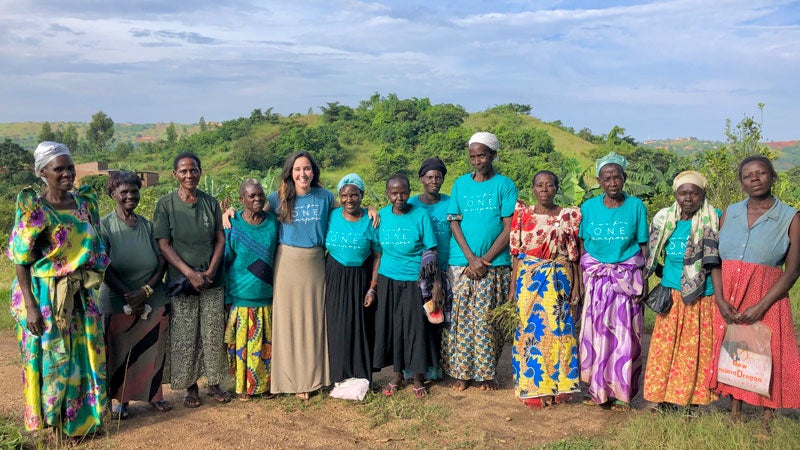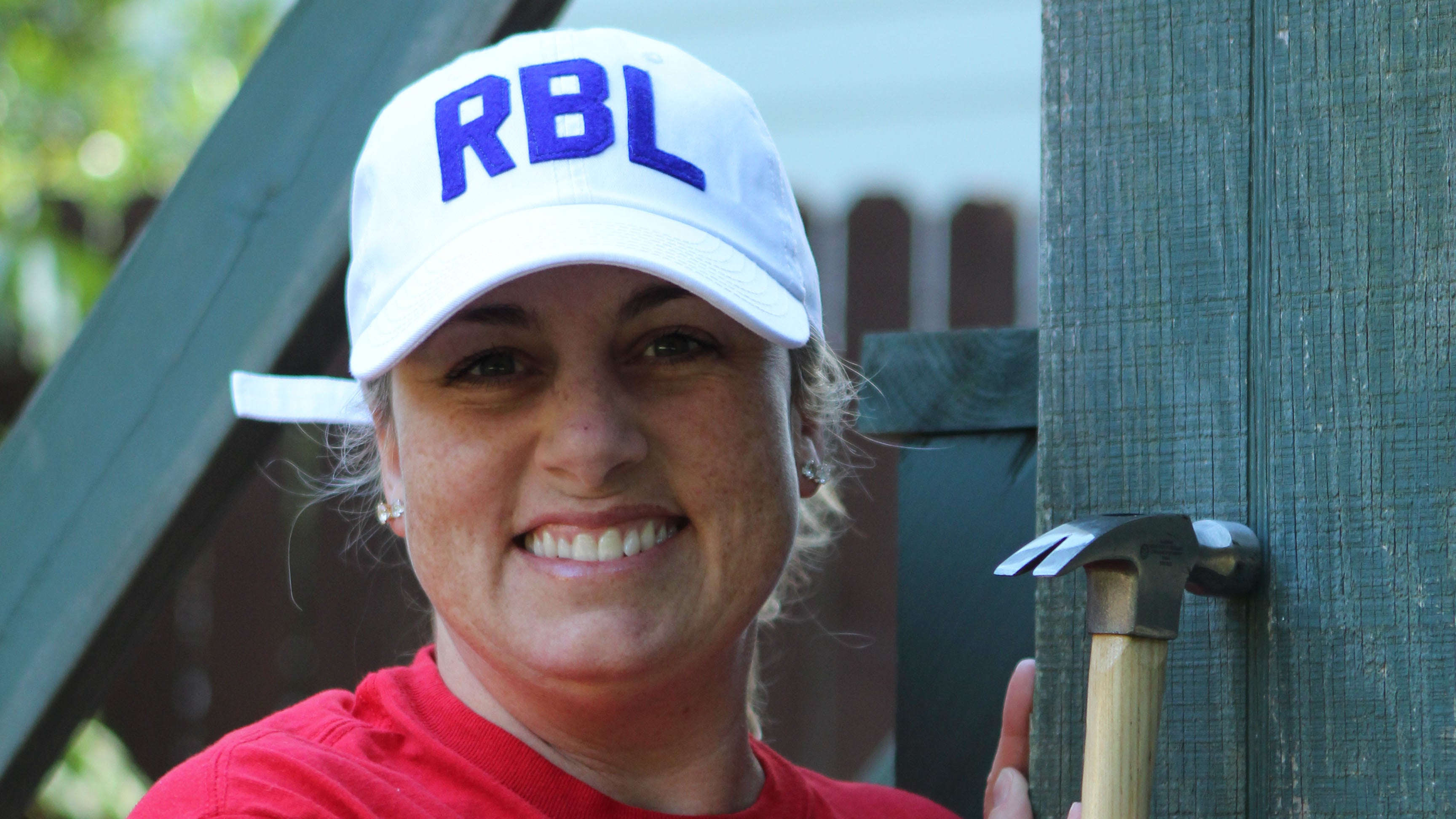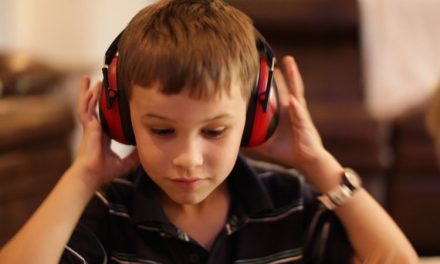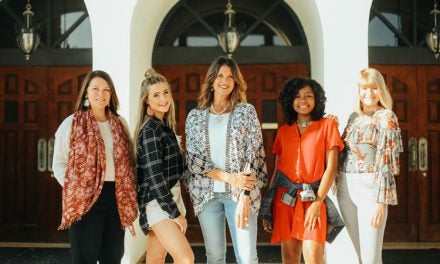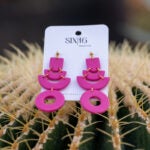Sitting in her living room in Vestavia Hills, a long, long, way from Uganda, Chelsie Hanna says she always felt the pull, always “had a heart for the continent of Africa, for the people.” But she just hadn’t had the chance to make it there. And then, five years ago, an opportunity fell in her lap. Some friends were going on a summer mission trip to Uganda. She’d been open to the idea of visiting any country in Africa, so she figured why not?
She liked the organization and was stable enough in her job to be able to take the time off, so she did. She went for 10 days to the village of Ngongolo, which sits between the larger cities of Kampala and Entebbee in the east central African country. She and her friends went door to door with the missionaries to the mud huts of the village, just praying and talking to the women. “I just saw all different kinds of things,” she says. “We obviously saw deep poverty. We saw a lot of women and a lot of children, but hardly any men.”
And these women were spending all day just trying to gather and cook enough food for themselves and their children. Electricity is almost non-existent there, and all the cooking has to be done over an open fire, three times a day.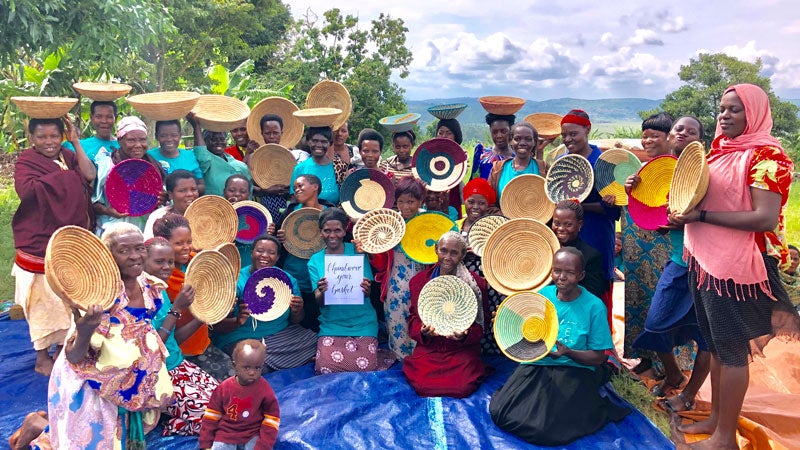
But first, they need water. Each day they send children as young as 3 and 4 years old to the nearest watering hole, sometimes miles away. There’s not even a well, and these small children have to bring back all the water their family will need that day for cooking, cleaning and drinking.
Food comes from the root vegetables in their tiny gardens, and they have to make a fire in order to cook each meal. This digging in their gardens, and tending fires, and waiting for water to boil take so much of their time, Chelsie says, that there just wasn’t much left for anything else. The women spent their days tied to their huts, with only their children for company. And many have six to 10 children to provide for, since many women are also raising someone else’s child.
As she spent time with the women, Chelsie felt something important was missing. “The greatest thing that stood out for me was I didn’t see any sort of community or fellowship, like nothing that was bringing them together as a community or just getting together with friends. This is all they did all day long every day.”
There were no jobs in the community, and nothing outside a weekly church service to bring them together. Chelsie says some of the women felt something was missing, too. “Humans are humans and we’re designed to need that interaction with others, and I immediately started to think, ‘What if a week goes by and I don’t get together?’ Like we wouldn’t survive here if you don’t see other people, and you’re just sitting inside or outside cooking all day long.”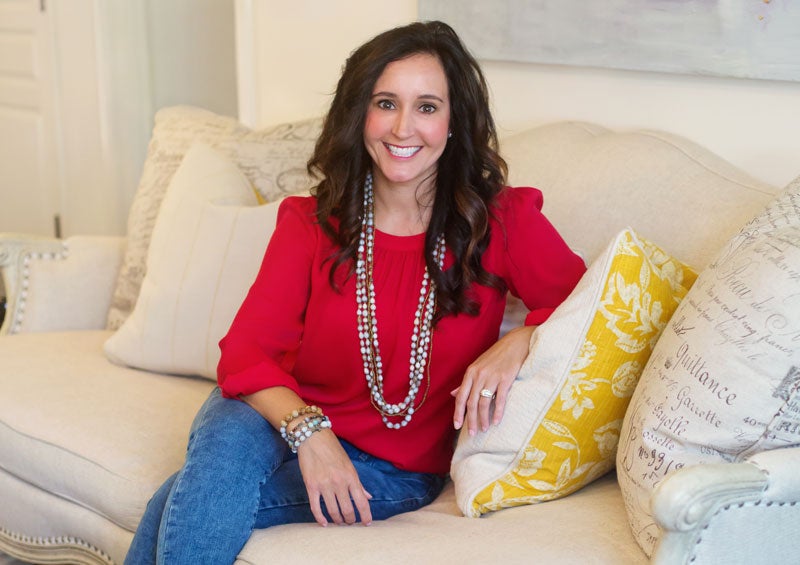
At the end of Chelsie’s 10-day stay, the women stayed on her mind, but she went back to her job as a corporate recruiter in Birmingham and tried to return to the life she’d had before. She tried to push the idea of doing more out of her head. But it just didn’t work. By autumn, she says she stopped trying.
“Around September of 2014, I really started to talk to God about it. ‘What would this look like? What are you calling me to do? I don’t have the answers. I don’t know how to do anything. I’m just a job recruiter. How does that relate to women and children in Africa?’”
Still, she could not ignore the voice. She started raising money, and by December she had quit her job and bought a plane ticket to Uganda. “I knew that, definitely, it was going to be a women’s ministry, and that was about all,” she says. She bought Bibles in their native language, Lugandan, and off she went. In January of 2015, she held their first Bible study under a mango tree in the middle of the village’s town center. Twenty-five women showed up. Two days later 48 women came. Next, it was 55. It grew in the first four months to 120 women, some of them walking several miles just to get there. “They found the time,” Chelsie says. “They might have left a daughter or granddaughter back home cooking for lunch or dinner, but they made a way.”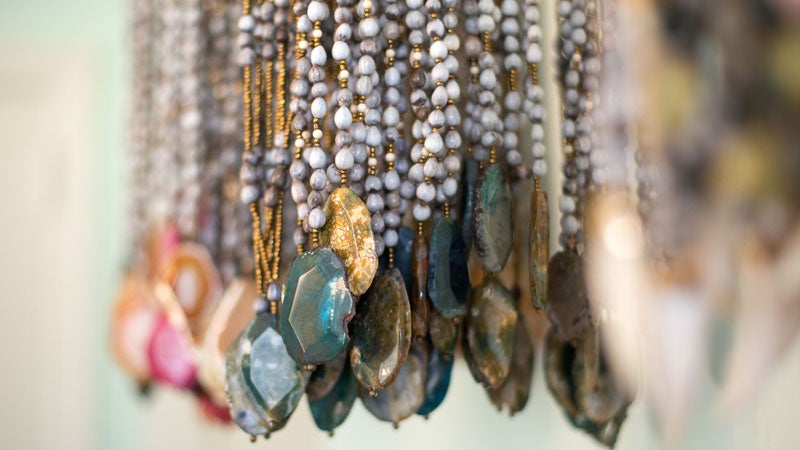
The meetings began to satisfy the women’s emotional and spiritual needs, but Chelsie looked around and wanted to do more. She noticed how in other villages and on the sides of the roads she’d see women selling jewelry—paper beads, mostly—and Chelsie got an idea. So, she got the materials, and the women started making necklaces. They shredded paper, rolled it into little beads, then painted and varnished them, finally running strings through them.
She brought the necklaces back to Alabama that summer and sold out immediately. When she returned in the fall, she had a new idea. They started using seeds from a plant that grows wild there, called Job’s Tears. It has little seeds that are very hard and hollow in the middle. They’re pearly white, perfect for making necklaces. Chelsie started adding gemstones and pieces that look like tiny antlers to the jewelry to keep pace with current jewelry fashions in the U.S. These necklaces and bracelets could also be sold for more than the paper beads.
So, four years later, Chelsie continues making trips to Ngongolo, visiting with the women and bringing the jewelry home to sell, which she does mostly in trunk shows. The Bible studies and jewelry-making sessions are so popular that Chelsie added a kids club to give them something to do while the women work and study. The kids club is led by Ugandan women, and they also do arts and crafts, jump rope, and play with soccer balls to keep the children busy.
In those four years, Chelsie has seen life in the village change. “They feel empowered by group gatherings that they’ve never had before (and) relationships with other women (and) work that they’ve never had the opportunity to do before. It has made them so much more proud. Some had never done anything but dig in their garden for money or a living.”
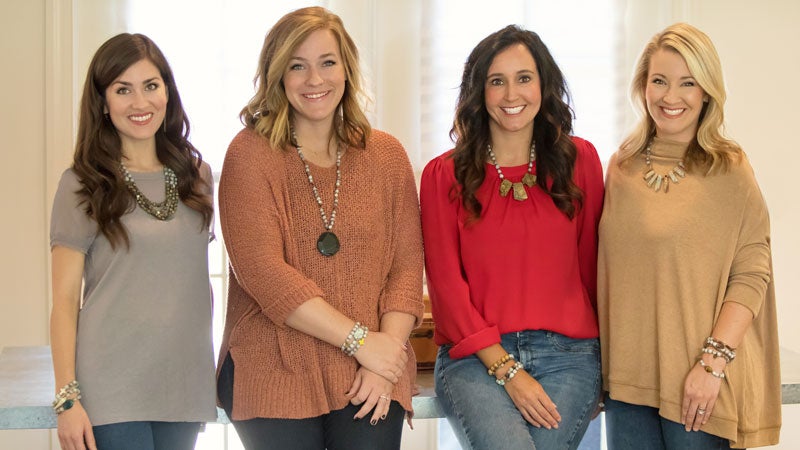
But they’re also benefitting in another way. Now, when the women and children get sick, they have money to buy the IVs and antibiotics to treat malaria and typhoid fever—two illnesses that always accompany mosquitoes and dirty water.
The money from the jewelry-making also helps pay for the things they can’t grow: salt, sugar, and fuel to be burned for lights. And for some, it pays for their kids to go to school. That is a major goal for the women of Uganda. They want their children to have an easier life, and they believe getting an education is the only way to do that. “They love their kids and adore them and will do anything for them to have a better life,” Chelsie says.
Paydays are always a celebration in Ngongolo, and when the women try to thank Chelsie she has to remind them, “This is not me giving you money! This is you receiving your money for your hard work. Don’t thank me, thank yourself!”
Ultimately, Chelsie would like to see the women’s jewelry sold in retail stores all over the U.S., but she has to remind herself, “It’s not a huge operation. This is just 120 African women and their friend Chelsie.”
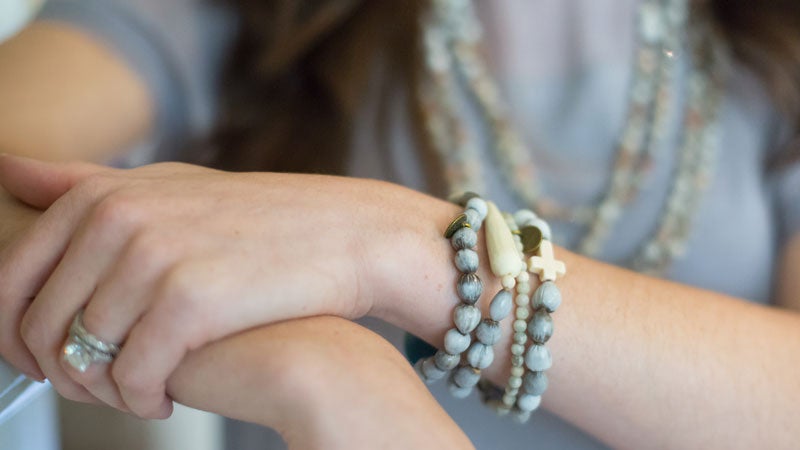 Support Two for One Purpose
Support Two for One Purpose
Host a Trunk Show
While Chelsie exhibits the jewelry at as many festivals and art shows as she can, she says trunk shows are the easiest. All it takes is for a woman to invite a bunch of her friends over, and Chelsie will bring the jewelry. Contact Chelsie at chelsie@twoforonepurpose.org for more information.
Stay In Touch
The best way to keep up with Chelsie (and the women of Ngongolo) is by visiting twoforonepurpose.org or by following her on Instagram at @twoforonepurpose.
Buy Jewelry
Designs by the women of Ngongolo can also be purchased on twoforonepurpose.org.

